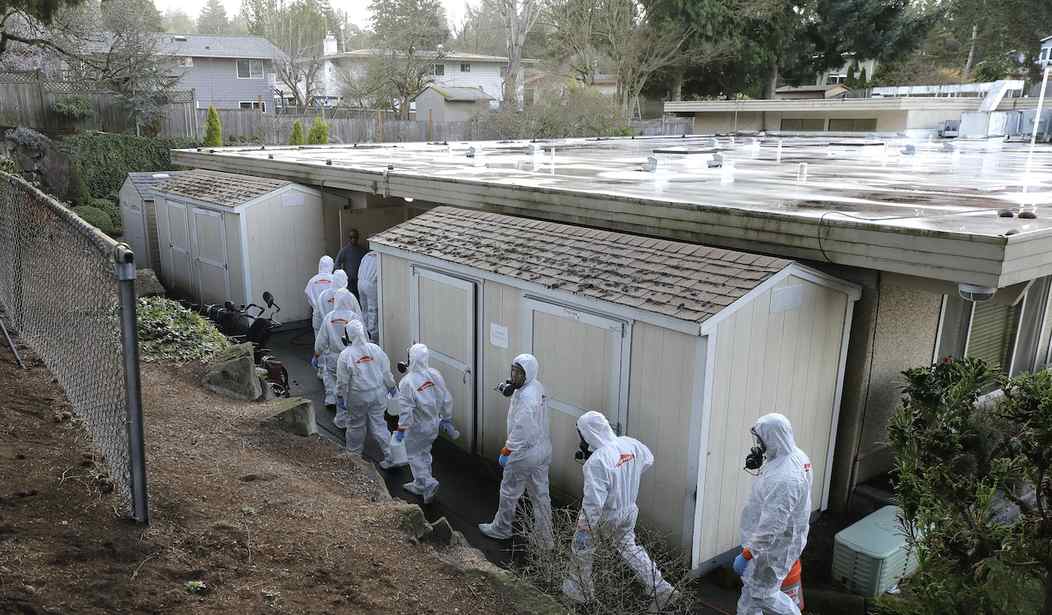“Life is hard, and then you die.” My father used to tell me this every time I complained about something trivial. He’d say it in a slightly demeaning tone, clearly mocking my attitude. My grandfather would use the Spanish word “pobrecito,” jokingly saying that I was a “poor boy” because I didn’t get what I wanted.
In truth, I had a very privileged childhood, and odds are that no matter who you are and where you are reading this article from, you did, too. Most of human history is a story of men and women eking out a living amidst grinding poverty and, all too frequently, oppression. Yet in our modern era, we enjoy relatively cheap and abundant food, electricity, heating and cooling, cheap entertainment, a dizzying array of available occupations, and a medical system that — for all its flaws — can keep us alive well into our eighties and nineties, if we’re careful.
In fact, we’re so rich, we can afford to forget about death. Most of modern life and entertainment seems designed to make us forget about the ultimate demise of our physical bodies.
This is one of the many reasons why secularism, atheism, materialism, or — my personal favorite — apatheism is so prevalent. Since we forget about death, we can forget or choose not to worry about God and His demands on our lives.
This was practically impossible for our ancestors. Indeed, for most of human history, death attended nearly every part of life. Birth was a dangerous process — for both the mother and the baby. Children died before reaching adolescence. Young men died in war. Young women died in childbirth. Cities were places of opportunity, but their streets often ran with sewage, and plague routinely ravaged these cesspools of humanity. You were lucky to make it to age 40, much less live into your late sixties.
In a world like that, you can’t afford to forget about death. In a world like that, you can’t afford to forget about God. You can’t have apathy about religion — the contingency of your very existence presses in on every side.
For a brief period of time, the coronavirus pandemic introduced us to a glimpse of that experience. A deadly plague about which we knew so little threatened our health, our way of life, and even our existence. It seemed rational not only to stay at home but to pause the commerce of everyday life.
That terror now feels like an interruption. Americans are returning to work or hankering to go back. Lockdowns are finally lifting. The economy may start humming again, in earnest.
Yet it is important to remember those weeks, those days, those moments when everything in our world seemed about ready to collapse. That terror wasn’t just a reaction to a deadly threat. It was a reminder of what life really is.
For all our comfort and our ability to forget about death, we are not fundamentally different from our ancestors. Sure, we have better food, we have electricity and entertainment, we live longer. But we are all going to die. My grandfather already has. We all need the ultimate answer to the ultimate question: is there anything after death?
As a Christian, I believe there is. Two thousand years ago, an obscure Nazarene carpenter died an excruciating and humiliating death. His followers deserted Him. His best friend betrayed Him. The Roman Empire that executed Him barely knew He even existed.
Yet somehow the disciples who betrayed and deserted Him later died their own excruciating deaths, insisting to the end that He had risen from the dead. Their belief made them true servants, saving the lives of infants, born and unborn. They risked death themselves by saving others stricken with the plague. They had security in a world of terror. They had seen the face of God.
We cannot know the kind of despair they faced. We cannot experience their utter shock when — unbelievably — their Master and Lord came back from the dead. But we can read what happened and we can embrace the security they had.
In fact, I believe that security enabled the great transformation that gave birth to the world we take for granted today.
The panic caused by the coronavirus should open our eyes. That short span of terror should remind us just how blessed we are — and how little fundamentally has changed. We are richer, but we still die. Ultimately, the story of our lives is a tragedy — unless we also embrace the cross and the empty tomb.
The coronavirus has reminded us that we need something more than just entertainment. Modern life is wonderful, but it ends in death, just like the grinding poverty of our ancestors. Only Jesus Christ can offer us the hope of Resurrection.
Tyler O’Neil is the author of Making Hate Pay: The Corruption of the Southern Poverty Law Center. Follow him on Twitter at @Tyler2ONeil.









